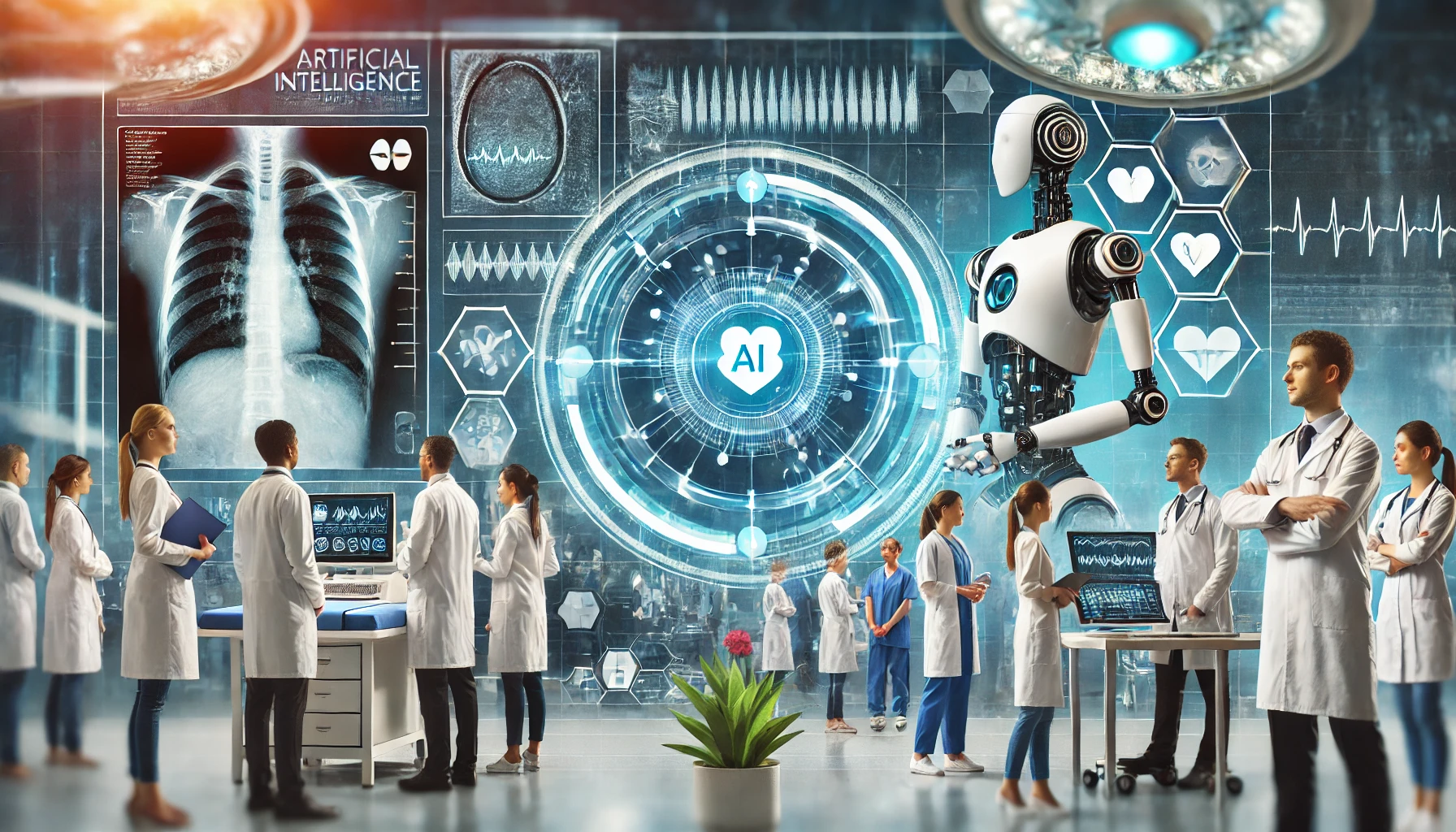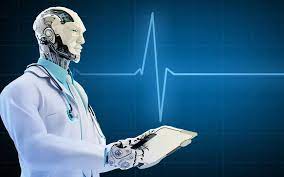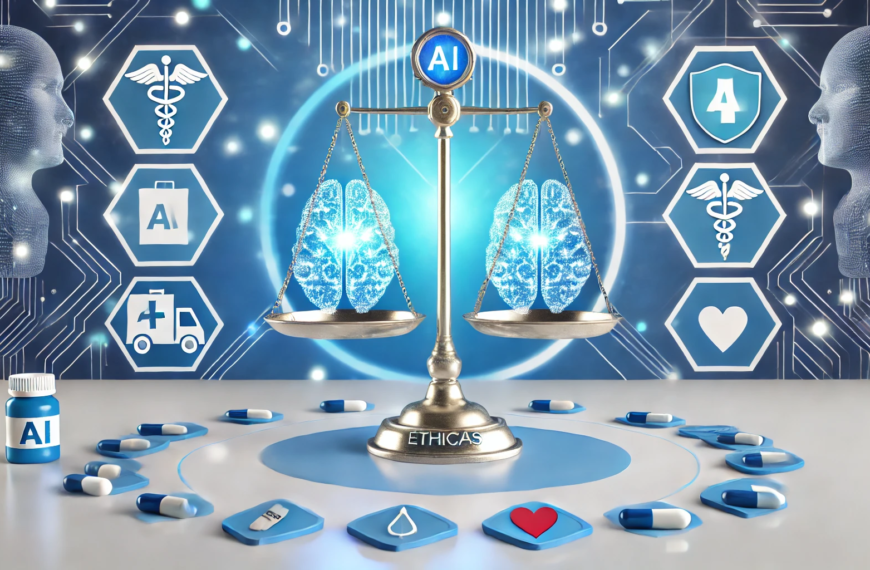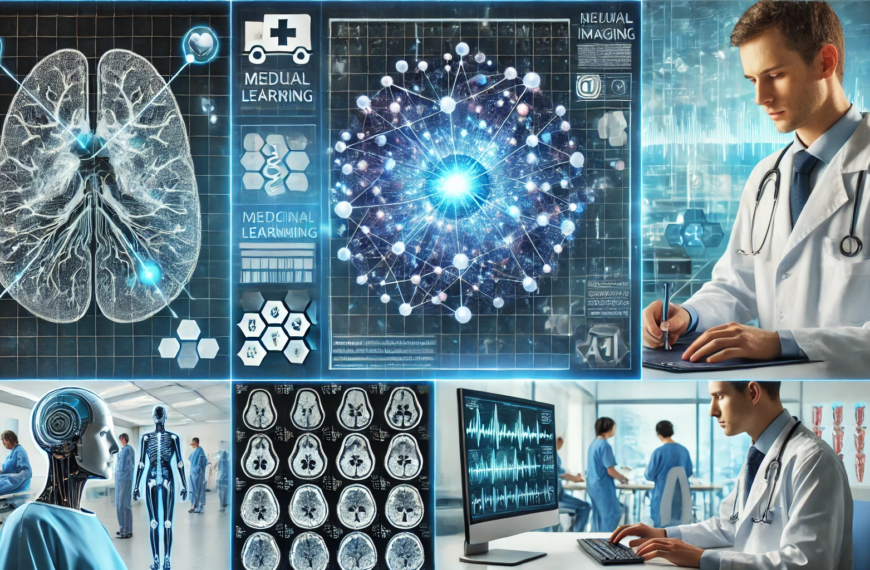Artificial Intelligence (AI) is no longer a concept reserved for futuristic movies or tech labs—it has become a transformative force in countless industries. Healthcare stands out as one of the most promising areas where AI can make a profound impact. From early disease detection to personalized medicine, AI is reshaping how we approach health and wellness.
In this blog post, we’ll explore how AI is revolutionizing healthcare, highlight its real-world applications, and discuss the future of this dynamic field.
How AI is Transforming Healthcare
AI in healthcare leverages machine learning, natural language processing (NLP), and data analytics to process vast amounts of medical information efficiently and accurately. Here’s how it’s making waves:
1. Early and Accurate Diagnosis
AI-powered tools can analyze medical data such as imaging scans, lab results, and patient records to detect diseases earlier and more precisely. For example:
- Radiology: Tools like Google’s DeepMind and IBM Watson Health have shown exceptional capabilities in identifying abnormalities in X-rays, MRIs, and CT scans.
- Dermatology: In some studies, AI algorithms can detect skin cancers more accurately than dermatologists.
🌐 Read more about AI in diagnostics on Healthline.
2. Personalized Treatment Plans
AI can create tailored treatment plans by analyzing an individual’s genetic profile, medical history, and lifestyle factors. Companies like 23andMe and Tempus are making strides in precision medicine, ensuring treatments are more effective and less invasive.
3. Enhancing Drug Discovery
The traditional process of discovering new drugs is expensive and time-consuming. AI accelerates this by predicting how molecules interact with diseases, helping researchers identify potential drug candidates faster.
- Example: Pfizer’s partnership with IBM Watson has been instrumental in developing immuno-oncology drugs.
🌐 Learn more about AI in drug discovery at Pharmaceutical Technology.
4. Virtual Health Assistants and Chatbots
AI-powered chatbots and virtual assistants like Babylon Health or Ada Health provide instant support to patients by:
- Answering health-related questions.
- Monitoring symptoms.
- Advising when to seek medical care.
These tools bridge the healthcare access gap, especially in underserved areas.
5. Streamlining Administrative Tasks
AI simplifies administrative burdens such as scheduling appointments, managing billing, and maintaining electronic health records (EHRs). This efficiency allows healthcare professionals to focus more on patient care.
🌐 Explore more about AI in EHRs on HIMSS.
The Challenges of AI in Healthcare
Despite its promise, AI in healthcare comes with challenges:
- Data Privacy: Ensuring patient data remains secure and compliant with regulations like HIPAA and GDPR.
- Bias in Algorithms: AI systems may reflect biases in the data they’re trained on, potentially leading to disparities in care.
- Integration with Existing Systems: Adapting AI to work seamlessly within existing healthcare infrastructure is complex.
The Future of AI in Healthcare
As AI technologies mature, their potential applications will expand further. Imagine a world where:
- AI monitors your health in real time and alerts you to potential risks before symptoms appear.
- Robotic surgeons perform complex procedures with unprecedented precision.
- AI-powered platforms predict and prevent disease outbreaks by analyzing global health data.
🌐 Stay updated on the latest AI healthcare trends with Mayo Clinic.
Conclusion: The AI Revolution in Healthcare is Just Beginning
Artificial Intelligence is not just a buzzword; it’s a game-changer for the healthcare industry. By enhancing diagnostics, streamlining processes, and personalizing treatments, AI is paving the way for a future where healthcare is more accessible, efficient, and patient-centric.
If you’re passionate about how technology can improve our lives, keep an eye on AI’s evolving role in healthcare—it’s bound to transform how we care for ourselves and others.






